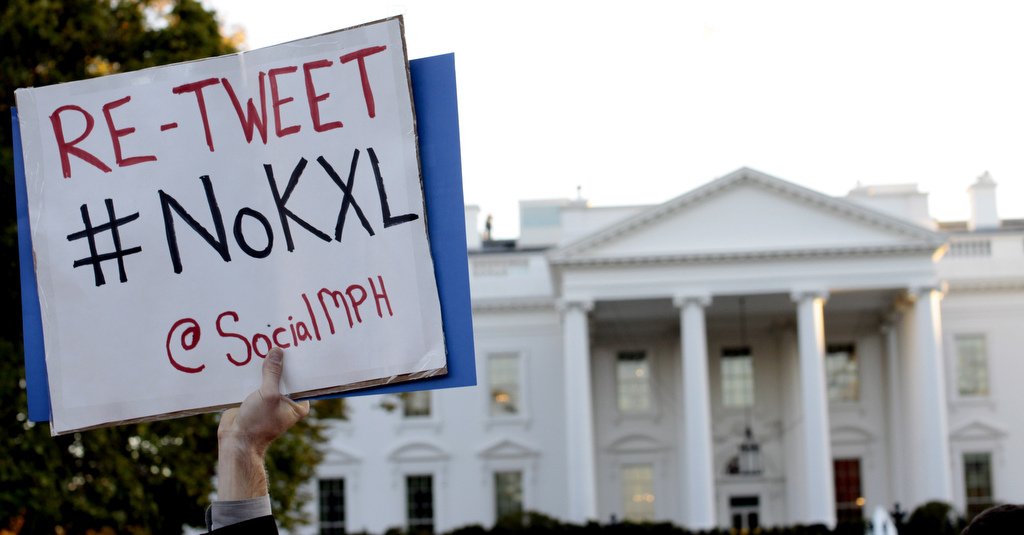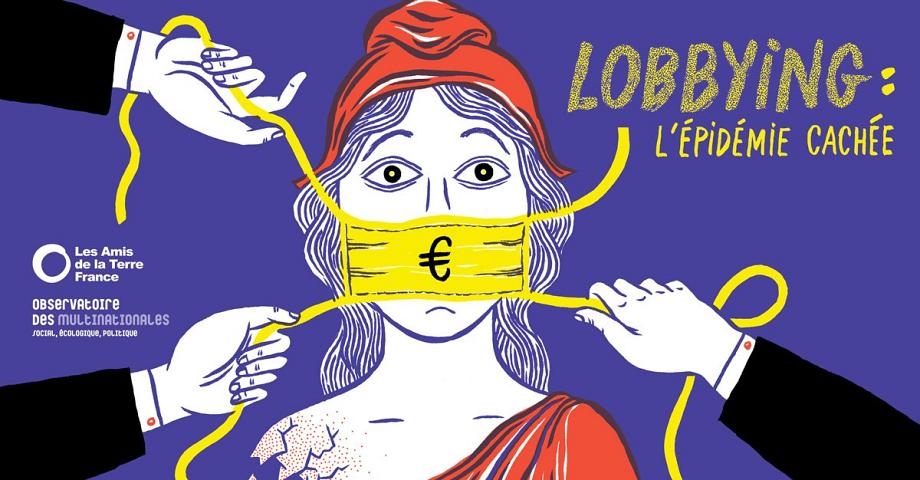We seem to be heading straight toward climate disaster. We know what will happen if we do nothing about climate change, yet nothing really changes. Why is it so?
Naomi Klein : It’s not that we’re doing nothing – we’re actually actively doing exactly the wrong things. We have an economic system that defines success and progress as infinite economic expansion. Any kind of expansion is deemed good. Our emissions are going up much faster than they were in the 1990s. In the past decade, we had very high oil prices, which has created huge economic incentives for fossil fuel companies to push into new, more expensive, higher-emitting forms of extraction, such as tar sands and fracking. We also have a system that allows multinationals to seek out the cheapest means of producing their products, with cheap labour and cheap energy – which has lead to the deregulated burning of coal. All this is making the problem much worse.
You say that transnational corporations such as ExxonMobil, BP and Shell have declared war on the planet...
The business model of these companies is to find new fossil fuel reserves, which is the exact opposite of what we need to do in order to fight climate change. A research from the Carbon Tracker, three years ago, showed that the global fossil fuel industry has five times more carbon in their proven reserves than is compatible with keeping temperatures below two degrees warming… That’s the target our governments agreed to in Copenhagen, and that’s a target that is already a very dangerous one for many communities. But it provides us with a global carbon budget. We know how much carbon can be burned while still giving ourselves a fifty-fifty chance or better of meeting that target, and these companies have five times more carbon in their reserves than that amount. That explains why fossil fuel companies so actively fight the very dissemination of honest, climate science, why they fund politicians and organisations that deny the science of climate change, and why they fight every serious attempt to respond to climate change, whether it is a carbon tax or whether it is support for renewable energy.
Why such impunity?
Fossil fuel companies, particularly oil companies, are the most powerful companies in the world. Wars have been waged by our governments to protect their interests. It’s in the nature of fossil fuels that they’re concentrated in specific geographical locations, very expensive to get out of the ground, to transport, and to process. And so it lends itself to concentration of wealth and power, with a fairly small number of huge players , both state-run and privately owned, and that kind of concentration of power also lends itself to political corruption, both of the legal kind and the illegal kind. Hence the impunity.
Does this mean the first step of climate action should be to dismantle the power of transnational corporations?
This can mean a lot of different things. One thing we definitely need to do is not increase their power. This is why, more and more, the climate movement is taking an active part in blocking new free-trade deals, like the free-trade deal between Europe and the United States, like the TransPacific Partnership (TPP), like the deal between the EU and Canada, my own country. What these deals do is give new powers to multinational corporations to challenge governments through investors rights clauses, and in particular to challenge sensible climate policies. We already have more than enough evidence of this. For instance, the Swedish company Vattenfall is challenging the German phaseout of nuclear energy, claiming that it has lost 4.7 billion Euros, whereas we might want the German energy transition to be a model for other countries, because it is one of the boldest attempts to transition towards renewable energy. That is sort of ringing out like a warning to governments: ’If you do this, then you’ll be prosecuted.’ There are other examples of this in my country, where the province of Quebec banned fracking, which is another example of what we want more governments to do. But under the North Amercian Free Trade Agreement, an American company is challenging this ban on fracking, saying it violates its rights to drill for gas.
So we also need to strip away powers that corporations already have through deals like this. But it depends where you live. In the United States, it’s clear that there needs to be a challenge to corporate personhood, and to the idea that their campaign spending can be treated as free speech. There needs to be much stricter regulations on campaign financing or lobbying by corporations. This is certainly true in the European Union as well. We need this kind of approach, but we also need more of a grassroots strategy, such as we’re seeing with the fossil fuel divestment movement, which is about delegitimizing these companies. It isn’t just about getting a university or a city like Paris to divest from fossil fuels. It’s about making the argument that these are companies that have a business model that is profoundly immoral and that the profits that are gained from this business model are odious profits. And that governments have a right to lay claim to those profits, to pay for the transition away from fossil fuels. That’s where we really need to get to, that will really weaken their power, because what makes them powerful is their massive surplus of profits.
What kind of conversation can we have with the employees of these polluting companies? Can there ever be an alliance with them?
We need a justice-based response to climate change. That’s something that needs to be first codified in policy: we need to define what a just transition looks like and we need to fight for it. Concretely, that means that the workers who would lose their jobs in the fossil fuel sector should be retrained and get new jobs. There would be more jobs to get in renewable energy, because renewable energy, energy efficiency, public transit, etc. create 6 to 8 times more jobs than the extractive sector. In recent years there were big investments in the extractive sector, a big push for fracking for gas, for offshore drilling. And at the same time, there’s been a huge contraction in the willingness of governments to invest in their energy transitions. All over Europe we’ve seen governments cut their support for renewable energy. If jobs in the extractive sector are the only jobs on the table, of course the trade union movement is going to fight for those jobs.
So it’s the role of an alliance between the labour movement and the climate movement to fight for a vision of bold climate justice job creation. And that’s starting to happen : for instance, a trade union alliance in the UK calling for the creation of a million climate jobs, and articulating what that will look like. We have to remember that it is not environmentalists that are stealing the jobs away from workers in the fossil fuel sector. Just in the past few months, since the price of oil has dropped so dramatically, in the United States more than 100,000 jobs have been lost in the oil and gas sector. That’s not because of climate activism or environmentalists, that’s because it’s extremely dangerous and volatile to pin your hopes on a commodity like oil and gas, whose price goes up and down. One of the nice things about wind and solar is that they’re free, they’re the same price all the time and they’re not subject to these boom and bust cycles in the same way. This is actually a key moment to be building that type of alliance, because the deal between workers, trade unions and these multinational corporations has been severed by the companies.
You say that climate change can be seen as an opportunity, and that this transition can also be very exciting. How can we make climate action attractive for people who may think it is a very difficult process?
I don’t think it should be nearly as hard as it seems. What we’re dealing with is the legacy of climate policies of the past two decades, which were not justice-based, and which passed the bill for the transition onto consumers, onto working class people. So there came to be an association between doing something about climate change and increasing the cost of living. It meant paying extra for those green products or for renewable energy. For a little while, there seemed to be a willingness for people to accept that logic, but then the economic crisis hit. People realised that they were already paying to bail out the banks, and started wondering why they should also bail out big polluters, by paying more. At the same time they were seeing that these companies were not penalised, and kept on winning super profits. The injustice of it created a backlash.
We need a very clear and bold vision that explains what a justice-based transition means. It means not passing the bill on to the people who can least afford it, and insisting that the people most responsible for this crisis should pay the bulk of the bill. It doesn’t mean that there won’t be sacrifices across the board, but people are much more willing to make those changes if they see that the costs are distributed justly.
You write in your book that past mobilisations have demonstrated that saying no is not enough, that we need a comprehensive understanding of what is expected to replace this system. Who will lay out this vision?
There needs to be a democratic process to build that vision. I don’t think there’s one vision that will work in France, or even in every part of France, and that the same vision will also work in Canada or India. What we need to do is disseminate examples that are working at every level, whether it’s city level, the regional level or nationally, where groups are coming together to define what a just transition looks like for them.
As part of my work and travels I hear a lot of really good ideas. For instance, there is a big fight on the West Coast of the United States, near a place called Bellingham, Washington. It is a very green city, but there is a proposal to build a huge coal export terminal nearby. Initially, it’s been a very ugly fight that has pitted environmentalists against workers. But then a coalition was convened by the city government and the movement against the coal mine, which was also very much led by a local indigenous people, the Lummi Nation. The unions came up with a plan to redevelop the waterfront in a different way. It will create jobs for the same workers that would get the jobs in the coal export port, but it would be green development and it would not be about exporting fossil fuels to Asia.
That’s just one example and one project. The key thing is to really get these conversations going, because I’m continually amazed by the extent to which we fail to make connections between, for instance, a fight for affordable public transport and climate change. Or you’ll have a strike of rail workers fighting privatisation, but they will never mention climate change. So there’s this really basic failure to get in the same mode together, and use the power of these arguments to stand up to the pressure of austerity.
You talk about the ‘new territory’, Blockadia. What is Blockadia ?
Blockadia is sometimes called the fossil fuel resistance movement, and it comes from the movement in the United States against the Keystone XL pipeline. It is is a huge pipeline that a company called TransCanada wants to build from the tar sands region in Alberta down to the Gulf of Mexico. Tar sands oil is one of the dirtiest, highest carbon oils on the planet. When they started to build the pipeline, there was a protest camp that was constructed, people chained themselves to fences and they moved into trees. They called their camp Blockadia. That word somehow took off and it started to be used wherever people were fighting these extractive projects, whether it was a mine, an export terminal, or fracking. Even though the word itself was born in the US, the tactics of Blockadia are much bolder and really come from the global South. Oil Watch International and EJOLT have done a really great job of mapping this transnational space. If we want to choose a somewhat arbitrary date for when Blockadia began, it would be the struggle of the Ogoni people against Shell in the 1990s: a successful struggle to kick Shell out of their territory in the Niger delta – Shell has never been able to return.
You seem to expect nothing from the international Climate Conference in Paris in December 2015. What can be expected from the process of international negotiation?
We have to be very realistic about the fact that it is not going to save the world, that it’s not going to produce an agreement that’s in line with what scientists are telling us we need to do. Scientists are telling us we need to cut our emissions by 8 to 10 percent a year, starting now. Our governments are talking about cutting emissions by 2 to 3 percent starting next decade. It’s just not in the same ballpark.
It’s a big mistake to reinforce this narrative that we just have to convince our leaders and suddenly they’re going to become totally different people between now and eight months from now. That’s a recipe for disappointment. That’s what happened with Copenhagen in 2009. A lot of people got deeply depressed afterwards. We need to see Paris as a stop along the road in a long process. The significance of Paris is that, particularly in Europe, there’s been this huge avoidance of the climate issue since the economic crisis hit.
I started the book by saying that it is not only elites that can declare a crisis: regular people or social movements can declare a crisis as well. As we get closer and closer to the summit, there’ll be more and more talk about climate change. So it’s a chance to change the conversation, and to talk about what we should be talking about. We need to get away from this completely meaningless discourse around ‘we’re going to be cutting emissions by 20 percent of the 1990 levels by 2030’, and saying, ‘no, we need to be cutting emissions dramatically now’. And we need to start by closing off fossil fuel frontiers. I think there’s huge momentum towards a ’keep it in the ground’ message. And it might just be possible. A lot can happen in eight months.
Some of it depends on whether the price of oil stays down, because, for instance, in the Alberta tar sands, we’ve been fighting an uphill battle, because it was so incredibly profitable for companies to go into Alberta and dig up that oil. But right now investors are fleeing Alberta. So that context makes it more possible to win a structural victory. For instance, calling for a ban on Arctic drilling, or for a moratorium on tar sands extraction and a process of winding down that project, which is the largest industrial project on earth. I have no idea whether it’s possible to get that on the agenda for Paris. It’s not in the negotiation document right now, but I don’t think we should give up on getting that on the agenda.
What would you say to people who want to do something ’in their daily lives’ to make a difference?
We know the things we can be doing in our daily life to reduce our carbon footprint. A lot of us have already done those things. And we should do them, because it makes us saner and healthier and have less dissonance in our lives. But I also think some of the discouragement people feel is a result of the fact that they have made individual changes and seen that it doesn’t result in structural changes.
That’s why I’m really encouraged by movements like the fossil fuel divestment movement where people are demanding that their universities, their pension funds or their cities divest from fossil fuels. Because it’s important to get the argument out and delegitimize the profits of the sector, but it’s also working at a scale that is more than the individual and less than everything; it’s significant but not completely overwhelming. And it’s part of realising that we are more powerful when we act together.
Would you say degrowth is a solution?
It’s useful as a diagnostic : we do need to move away from an economic system that has growth as its sole measure of success and of progress. Overall, we need an economic system that does contract our use of resources, particularly fossil fuels. But adopting the banner of degrowth as the goal is a mistake: just because growth is the heart of the problem, it doesn’t follow that degrowth is be the solution. If the problem is measuring success through growth, then the solution, I think, is having another measure of success. Every context is different, but in a lot of contexts – particularly when people are experiencing relentless austerity – using the term degrowth is not a smart communication strategy.
Is there a way to deal with climate change by way of a technical solution, or is everything political?
It’s a combination. Renewable energy is about technology. There have been brilliant advances in all kinds of technologies. Agro-ecological farming is not just a return to traditional farming methods. It’s a combination of ancient knowledge and modern technology. But we can’t get around the fact that there has to be a contraction in our consumption and our use of resources, so only focussing on technology gives a false impression that we don’t have to change anything except for our source of energy. There also needs to be a strategy to reduce demand, so that we actually use less energy. That’s why just focussing on technology is dangerous. And it’s worse for other technical fixes like geo-engineering, that are more sci-fi : this idea that there’s going to be some magic bullet that will allow us to dim the sun so that we’ll stop warming the planet… That’s an expression of precisely the type of hubristic world view that actually created the problem in the first place.
So is there no way to fight climate change without fighting capitalism?
No, I don’t think there is a way. We’ve been trying that for a long time. But there’s still a really strong strain of the green movement that thinks that it’s going to find a way to move forward that doesn’t offend those in power. I frankly think it’s just a bad strategy. If capitalism was working really well for the majority for people except for this problem of climate change, then we’d really need some kind of a strategy that protected that capitalist system, if such a strategy existed, which I don’t think it does. The fact is, that’s not where we are at. We’re at a point where there is a widespread popular understanding that this economic system is failing even on its own terms, more widespread than there ever has been in my lifetime. There is a huge debate about the neoliberal legacy of massive inequality. People understand that these policies that were supposed to create more efficiency actually created less. So the need for another economic model is urgent, and if the climate justice movement can show that responding to climate change is the best chance for a more just economic system, that creates more and better jobs, greater social equality, more and better social services, public transit, all these things that improve peoples daily lives, people will be ready to fight for those policies.
The problem is that we have enemies : fossil fuel companies, who fight like hell to protect their interests. They fight like they mean it, they fight with creativity, they fight dirty, they do whatever it takes to win. And opposite them you have this sort of mushy middle that doesn’t really fight, because its not sure what the results will be. But if you can marry an economic justice agenda with climate action, then you create a constituency of people that will fight for that future, because they will directly benefit from it.
Are you optimistic?
I don’t see this as a question of optimism or pessimism. We all feel pessimistic. Anyone who tells you they’re sure we’ll win is either lying or crazy. But giving in to our despair is a morally reprehensible position right now. Too many lives are at stake. So if there’s any chance that there is another way out, so then there’s a moral responsibility to fight to increase those chances. I don’t use the language of optimism to describe that position, I see it as a moral responsibility.
The urgency of the climate crisis, the fact that it tells us we have no more time to waste, we can’t lose this battle, we are on a tight deadline, can be a catalyst to win battles that many of us have been fighting for many, many years.
Interview by Agnès Rousseaux and Sophie Chapelle
—
Photos : Tar Sands Action CC




